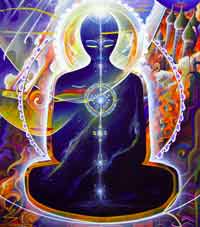
Batting Around the Mouse
I’ve always liked Scott Adams and Dilbert. He’s actually got a pretty good blog, too, and it’s a surprisingly combative one. You might expect that his blog is a lovefest if you’ve never been there: “omg Scot i totully luved dilbertt today! dogbert is my hero!’
Nope, Adams goes for the throat and his (many) commenters do too. It’s an intellectual and incendiary blog, and sort of a kindered blog to this one in many respects (I gotta recognize that he’s been doin’ it longer — he’s the Dogfather).
Speaking of the dyslexic agnostic (he stayed up all night wondering if dog exists) — Scott has gone after atheists in a big way lately, and caught plenty of reddit-hell for it. Good. He’s right: Full-on atheism is just as intellectually indefensible as religion.
This brings me to atheists. In order to be certain that God doesn’t exist, you have to possess a godlike mental capacity – the ability to be 100% certain. A human can’t be 100% certain about anything. Our brains aren’t that reliable. Therefore, to be a true atheist, you have to believe you are the very thing that you argue doesn’t exist: God.
I don’t particularly like the way he frames his argument as a percentage; it seems too much like gambling on Heaven (but that’s what it is, at least according to western religion). This is known as Pascal’s Wager:
Chief among the alleged flaws in Pascal’s argument is that you still have to pick the correct religion among many, or else you go to Hell anyway.Sure. But picking any religion that promises salvation slightly improves your odds over picking an option that doesn’t. You’re still probably doomed, given your bad religion-picking skills, but a one-in-a-million chance of reducing the risk of eternal Hell is a move worth taking, mathmatically speaking.
I don’t subscribe to this theory since I’m an asshole — an asshole who thinks it’s more important to find out the truth than to assure yourself a slot in heaven at the good table. In that respect I have a lot in common with the atheists who are eviscerating Scott all over the internet.
But why should they care?
If they were so secure in their position they wouldn’t be calling for his head, would they?
Many atheists claimed to be “weak atheists”, which is sort of like saying you prefer a shade of whitish-black. Just say “gray”, okay? The word “agnostic” already exists; use it.
So, much of the argument is semantics-based bickering. Tiring of this, Scott moved in for the kill — or so it seems. Like a cat batting around a mouse he’s just torturing these people and mocking their cognitive dissonance (ah… a man after my own heart).
The phrase “weak atheist” is apparently nothing but a weasel self-label for agnostics who have picked a side and don’t want to be seen as giving any opening to religion. It is politics disguised as philosophy.
As Scott pointed out, we can know a priori that atheism is not logical: If you admit you are not omniscient or omnipotent how can you claim to know whether or not an omnipotent or omniscient being exists? Or put more simply: how can atheism be proven true when you can’t prove a negative? Doesn’t that make it a faith, a religion?!
Cult of Nothingness
Oh man, nothing gets atheists more pissed off then calling their movement a religion. First they get angry, then they gather in communities like chatrooms and reinforce each others’ beliefs, hand out matching T-shirts and start setting up temples dedicated to their faith.
Oops.
They even have their high priests and holy writ. I guess atheism is big business — if you can get enough people to buy into it.
And that’s the problem, isn’t it? Aren’t most of us fed up with organized religion and all the attendant bullshit? No offense to the believers out there, but much of what is known about early Christianity, for example, reveals its modern branches as spawned from hoaxes, lies and ignorance. The Bible was not written by “God.” It was written by men, who say that it was written by God. Big difference, that.
Semantic Saṃsāra
Well, the natural reaction to the bullshit of Christianity is atheism. But wait a minute; how do you know atheism is any better? Well for all the reasons above, you don’t. Furthermore, you’re following an “-ism” — a meme, a movement, a faith, an order. And isn’t that what got you neck deep in Popeshit in the first place?
So what’s the answer?
Well, look at the atheist Scott got all riled up:
Perhaps if he had spent even a small amount of time researching the matter, he’d have learned what the difference between weak atheism and agnosticism is — and at the same time, he might have even learned how and why everything he wrote in his post was either factually incorrect or logically incoherent.
He makes a fair point in his link about atheists merely denying belief in a god rather than asserting gods don’t exist. Fair enough, but it’s a semantics game, buddy! Agnosticism staked out that turf long ago.
His rejoinder:
Agnosticism is not about belief in god but about knowledge — it was coined originally to describe the position of a person who could not claim to know for sure if any gods exist or not.
Splitting hairs! None of us can claim to know for certain, except for the specious claims of religious zealots… and a few atheist zealots in the other direction as well. If we accept his argument that:
An agnostic atheist won’t claim to know for sure that nothing warranting the label “god” exists or that such cannot exist, but they also don’t actively believe that such an entity does indeed exist.
How is such a belief different from just saying “I’m agnostic”? It’s 6 of one, half a dozen of the other. His semantic games probably help to win arguments, but his tactic of dividing people up into lots of different sects sounds a lot like religion to me. It’s the natural recourse of a zealot who’s experiencing cognitive dissonance.
It’s also a way of dissociating yourself from the truly nutball atheists — the “strong atheists” or whatever he would call’em. Fair enough, those people are stupid. But it seems to me like a lot of atheists are actually agnostics who have taken an atheistic stance until such a time as god is proved one way or another.
Why not just call’em what they are: fence-sitters. Agnostics. Agnosticism, by the way, generally outweighs belief, at least among the logical. Most of us are not ready to believe in a god we
don’t know. How can you tell it’s a good god if you don’t know its properties? Saying you don’t worship something you don’t know seems redundant, but I’ll grant that there are probably crazy people out there who worship gigantic invisible hammers or something.
The Stain of Christianity

To me, saying you’re an agnostic is sensible, but taking it one step further and saying you’re an agnostic atheist is presumptuous. Given that, to date, humanity has proven the existence of exactly zero gods, doesn’t it seem like putting the cart before the horse to say you don’t honor any of the thousands of gods that may or may not be out there? If, for example, humans knew of the existence of 1, 2, 10 or 2000 gods, then fine. You can say, “All of these gods suck. I’m an atheist.” That would be logical, but dismissing the panoply of possible gods beforehand is a logical leap that rigorous thinkers should not make. Perhaps there’s a big-tittied goddess out there who has no worship requirement, but has lots of great advice for lovemaking, thoughtful advice for living happily and the promise of eternal life. Many of the greco-roman gods were totally horny, and pretty tolerant, too. Don’t forget those Vedic gods who were into tantric sex rites. Are you gonna pass that shit up?
Atheists are, ironically, letting the blinders of Judeo-Christian tradition blind them and limit their imagination. I, for instance, don’t accept the notion that there can only be one god and he must be male (…somehow), omnipotent and omniscient. One can be extremely powerful without being all-powerful. Atheists are too concerned with the Christian conception of god and are letting those assumptions fuck with their logic. I would encourage so called atheists to explore eastern religions, many of which are more properly called “philosophies”, to get a good feel for belief outside of the Judeo-Christian deathgrip. Some suggestions: Buddhism, Hinduism, Taoism and Confucianism.
Subdivisions
There’s that “-ism” suffix again. Atheists are as guilty of it as anybody. Isn’t that a lot of busywork, subdividing yourself down to a certain sect, all so you can feel some sense of belonging, of having that “god” thing squared away? Done. Full stop. Finished. Problem solved.
But it isn’t quite that easy, isn’t it? Atheism is making alliances with other groups, such as hardcore fans of evolution and science in general. It’s growing and becoming a money-making venture and it’s increasingly gaining clout, especially on the internet. Atheism, in its way, affects all of us, and will do so even more in the future. In time it could become a political force and when that happens atheism will become just as corrupt and controlling as Christianity.
Atheists have a stigma — right or wrong — of being close-minded, of having decided something. That, to me, is the most dangerous part. Faith, god, reality, truth — these things are too important to just put in some box. Then again, maybe I’m just a contrarian or a purist because I wouldn’t call myself a Christian simply because some fellow ‘Christians’ would include Hitler and G.W. Bush.
Seeker of Truth
So now that I’ve criticized everybody else, what do I think? Fair question. I think that what’s important is not who or what you believe in, but that you try to find some truth. Life is a quest, and as long as you keep searching for truth or a clue or whatever, you’ll be okay. I believe that ‘seekers’ are safe in the eyes of any benevolent god.
Given a malevolent one, you’re fucked either way.
If there’s no god, oh well, at least you looked. If you’re not going to search how can you really mock the religious folks? Shit, that’s every atheists’ hobby, isn’t it? Their true tenet, their sacrament, I think, is to mock religious dumbshits. And god bless’em for that. I enjoy doing the same. But if you’re gonna talk the talk, you should walk the walk.
Ultimately, it about responsibility. If you’re labeling yourself with a convenient “-ism” you’re not really thinking. Take responsibility for your own faith or lack thereof and try to improve your level of knowledge. Lumping yourself in with a group is too easy. Everybody has different beliefs, so why do we gotta keep making these walls, these sects and strictly delineated sets of believers?
It just makes it easier for people to manipulate us, and isn’t that what atheists, agnostics and free-thinkers have tried to escape for centuries?
What I think we need is 6.5 billion people courageous enough to believe in 6.5 billion personal religions without killing each other, or amassing followers. … Yeah right. A guy can dream.
In the meantime, I guess we’ll have to get used to atheism as a legitimate “faith” in this country. There’s just one problem: I don’t believe atheism really exists! Haha, okay, I’m joking, but the point is that most so-called atheists are actually more agnostic when you come right down to it. But who knows, I could be wrong and as such I’m keeping my options open.
The only thing I know for sure is that people who claim they know “The One True Path™” are full of shit. Fuck them. Find your own path.
 Filed Under :
Filed Under :  Aug.13,2007
Aug.13,2007 This post currently has
one screech.
This post currently has
one screech.



Pretty well-reasoned, I thought. But I definitely want to challenge some of his assertions. Here is my response:
My apologies for the confusion over the water-diety. I didn’t make it clear, but I was referring to something similar to a water elemental — basically a spirit that is infused with one of the four elements (water is a compound, of course, but it’s also one of the classical elements), Fire, Earth, Air and Water (the Chinese add a 5th: Metal). It’s probably not a very good analogy since it’s completely hypothetical and imaginary, at least as far as science is concerned.
I grasp the stamp hobby analogy just fine. It’s a poor analogy, though, which you seem unable to grasp. Here’s why:
Collecting is an activity. Philately is a hobby. However, you could still be a philatelist and not actually collect anything. How? By knowing a heck of a lot about stamps, that’s how. Philately is the study of stamps, not the act of collecting them. You could be an expert in stamp lore without actually having a collection or wanting one.
Actually, maybe the analogy is not so poor, since once you learn how faulty it is you might be able to understand how atheism could be considered a religion. Of course, this does depend on semantics to an extent.
An extremely simple definition of religion is this: “A religion is a set of common beliefs and practices generally held by a group of people.” Boom. You hold beliefs in common with other atheists (you refuse to worship “known” gods) and your practices are also similar in that you refuse to attend worship services (I assume. Personally, I make exceptions for weddings and funerals, but I don’t “worship”). It may be negative, but that doesn’t mean you can’t group it under religion.
For example, you’ve already admitted that atheism is a philosophy. Would you also consider it a theological perception? Just because the content of your theological perception attacks the underlying structure of most other theologies and even theism itself, that does not stop it from being classified as some form of theological outlook. Do they study atheism in theology classes? In many cases, yes (there might be some bias in many of them, of course).
As for dogma, yes I consider the lack of belief in gods to be a dogma among atheists. If someone claimed to be atheist, but continually made shrines to Buddha would you consider him a “real” atheist?
To take it even further, have you ever heard “The first rule is that there are no rules.” Is that a rule? Sure seems like it to me, even though its singular act is to bar all other rules. It may be recursive, negative and contradictory… But it’s still a rule.
Also, if you knew more about theology you’d know that there are several religions that are nontheist. They generally don’t deny the existence of gods, they just aren’t concerned with them, and don’t take a stance on them either way. Confucianism and other eastern religions are a perfect example. For this reason, many people like to call them philosophies rather than faiths or religions, but this is another semantic argument, one that is caused by the overwhelming prevalence of Christianity in the weltanschauung of westerners.
If you consider ritual a necessary part of the definition of religion, consider the scientific method. It’s also a dogma of sorts, and it prescribes a methodology for discovering and verifying knowledge in such a way as it will be acceptable to others in the sci
entific community. In much the same way that a priest prepares to consecrate bread and wine, a dutiful scientist will prepare for an experiment by controlling for variables and making predictions (hypotheses) before the experiment-ritual itself is performed.
As for proceeding from the assumption of the null hypothesis, that’s your business. It’s certainly a good idea in science, but in matters of faith things are not so cut and dried.
Also, please note that I am not calling you a religious person by stating atheism could be considered a religion. I’m just pointing out that atheism is quite similar to other religions, and as it grows there is a risk that it could be seized and exploited by charlatans. I believe there was a South Park episode about this. I am also sure you would see through the bullshit and hopefully refrain from any atheistic fundamentalism, but just remember that there are a lot of stupid people out there. In fact, some people are dumb as fuck!
Even as I’m drawing religion and science together, surely you’ll concede there is much that separates them. The problem is that the scientific method is not known to work for the business of discovering gods. I believe Scott Adams once compared this folly to using a metal detector to check for unicorns in one’s sock drawer. The fact of the matter is, we haven’t discovered a “god” (definitively, based on the scientific method) so how can we say we’re using the best tools for the job?
Perhaps a new method is called for. Of course, if I knew that method I’d present you with solid proof of the existence of god(s). But you could easily reject it by saying my method does not adhere to the principles of the scientific method. But what if my method was better, at least for discovering and identifying divine beings?
A question to ponder: Have your placed your faith in the scientific method?